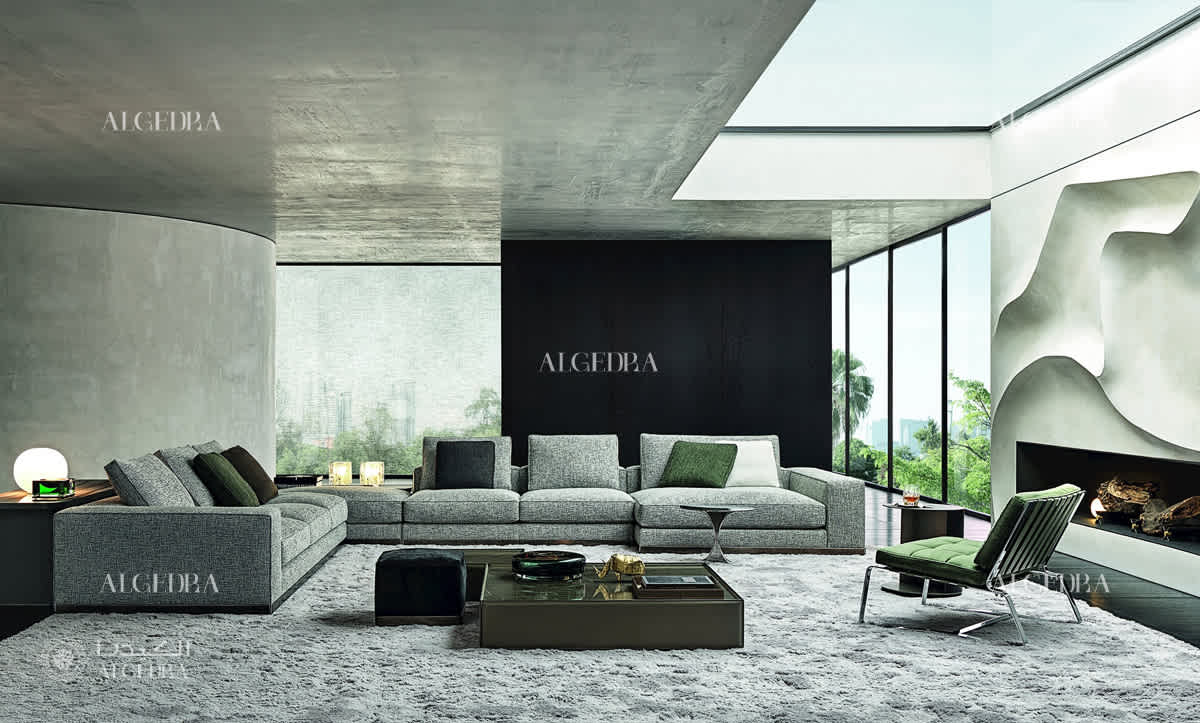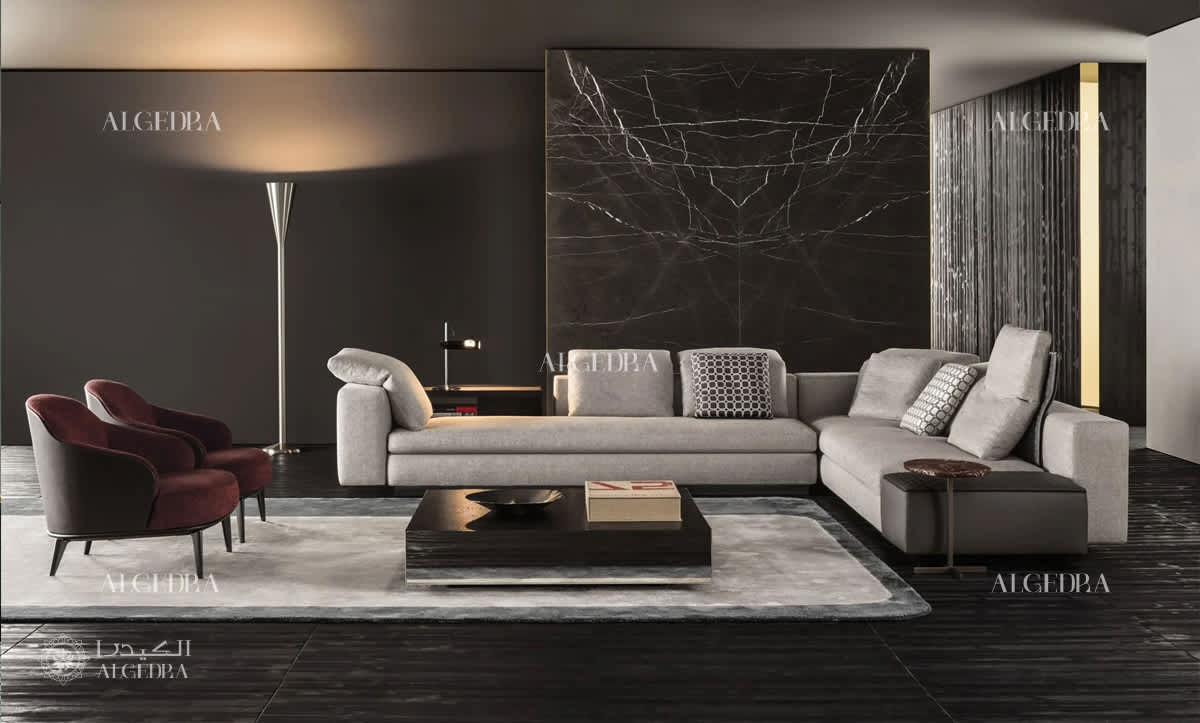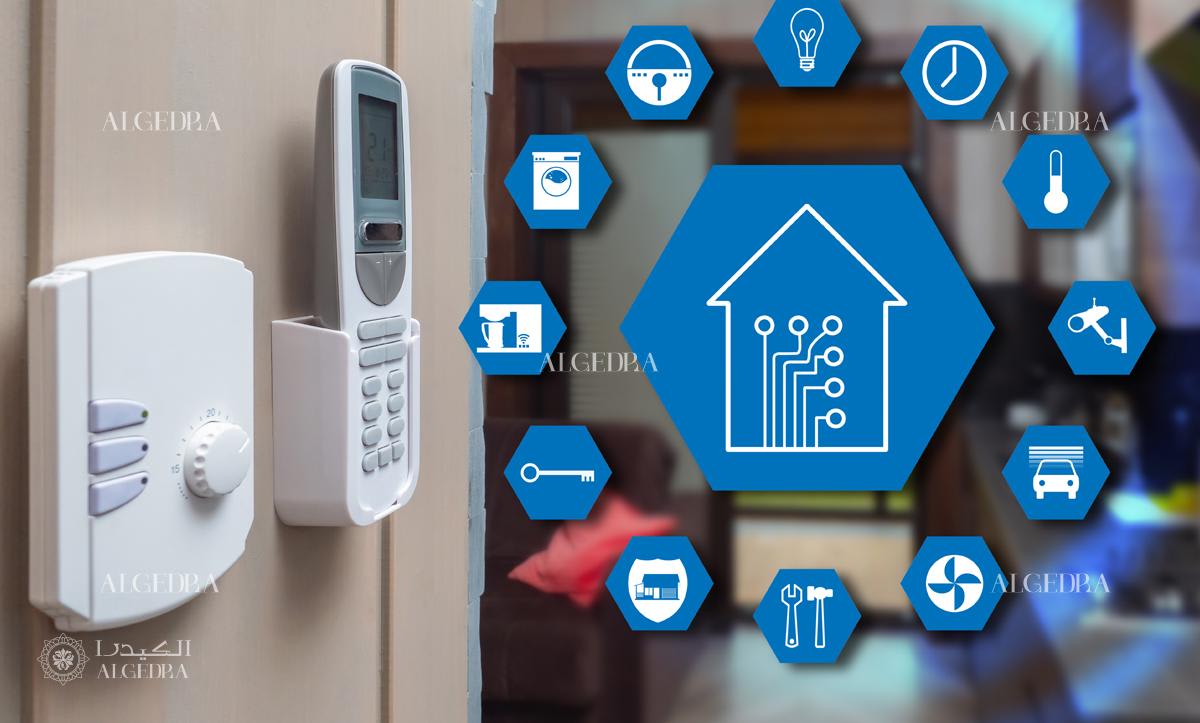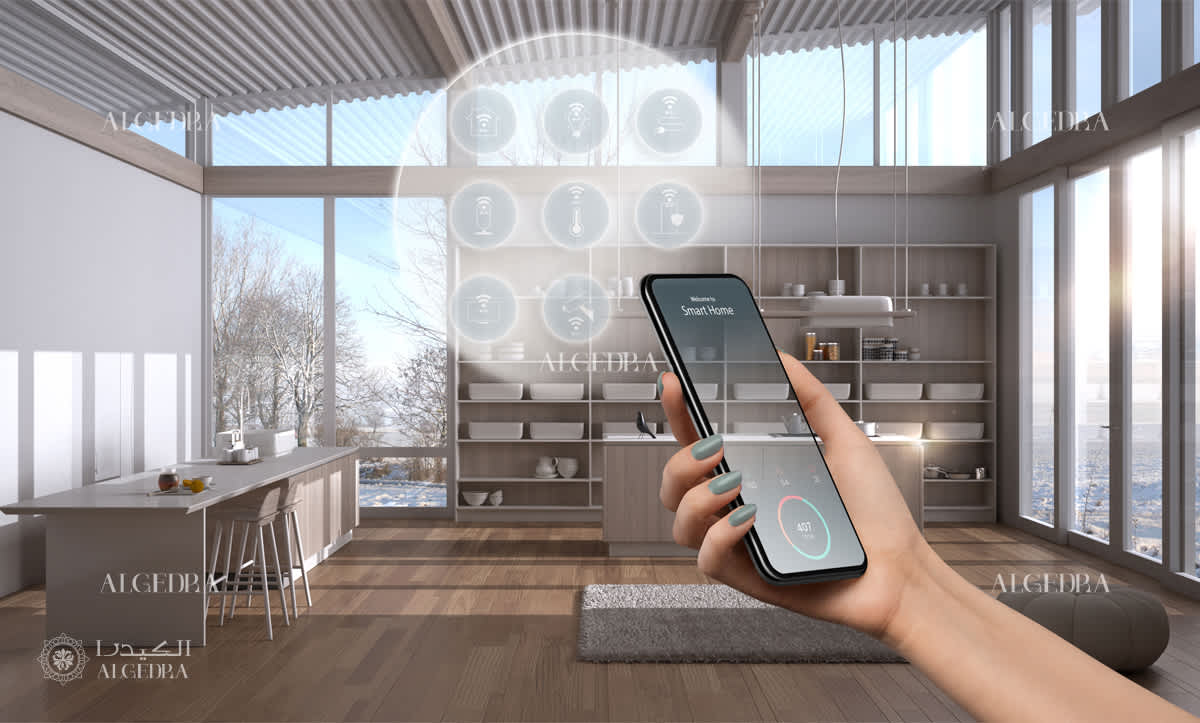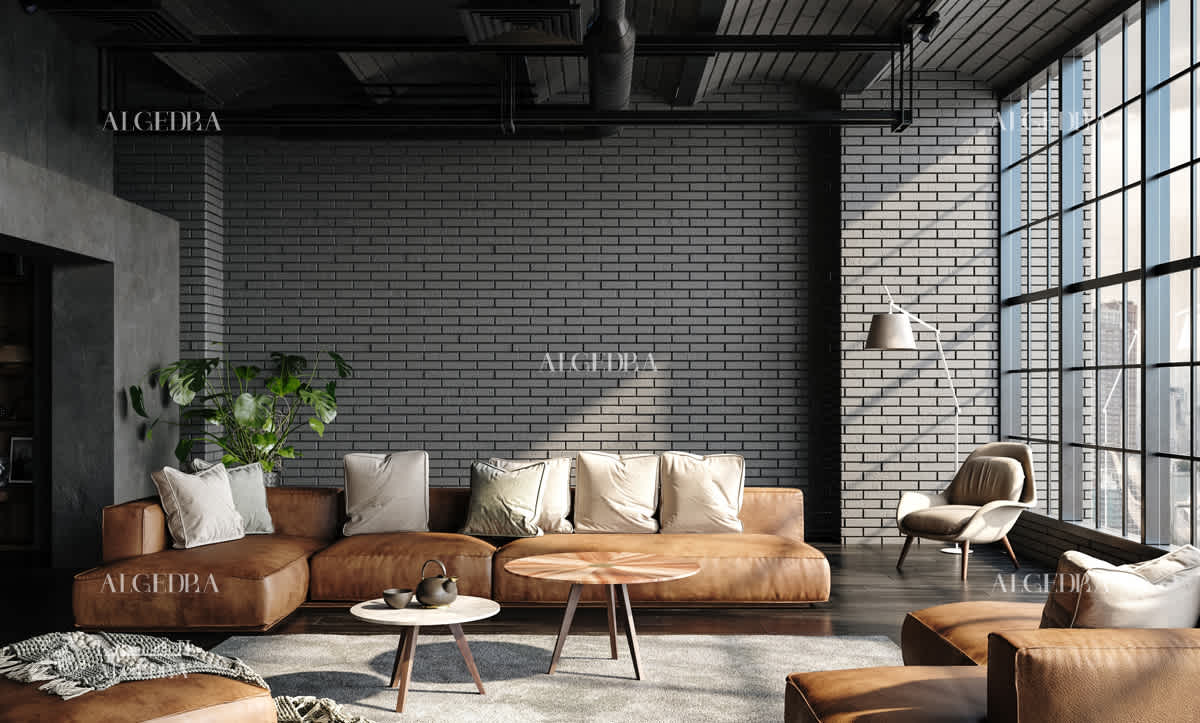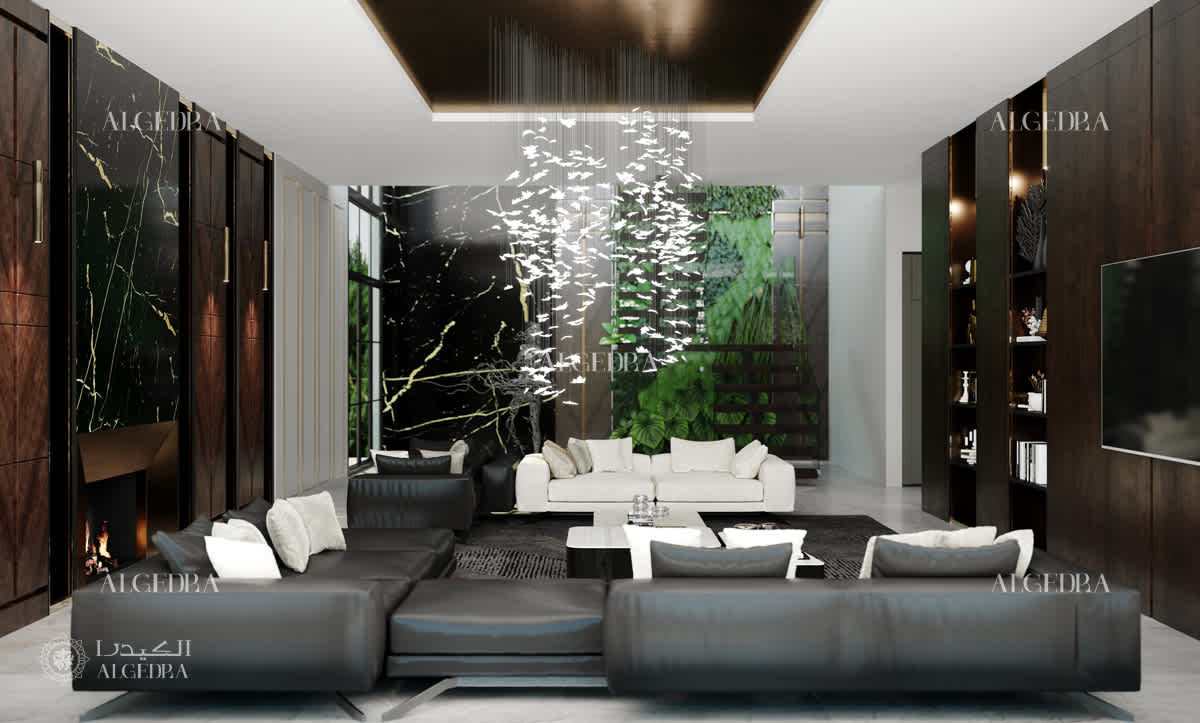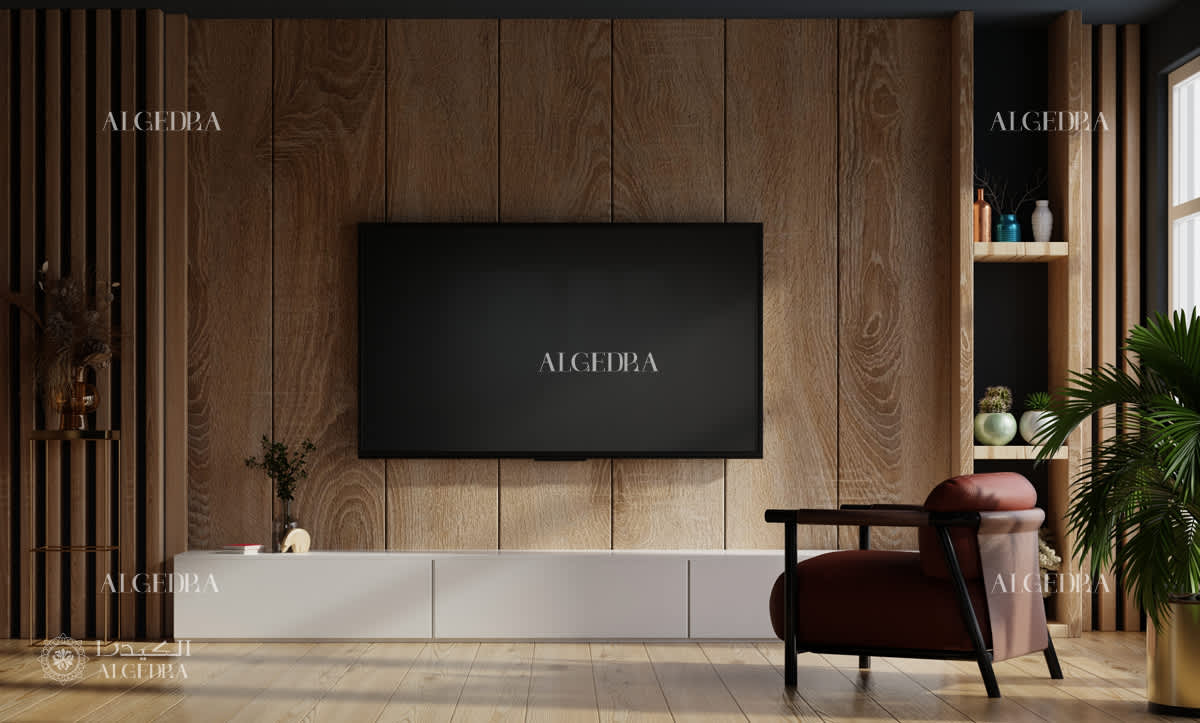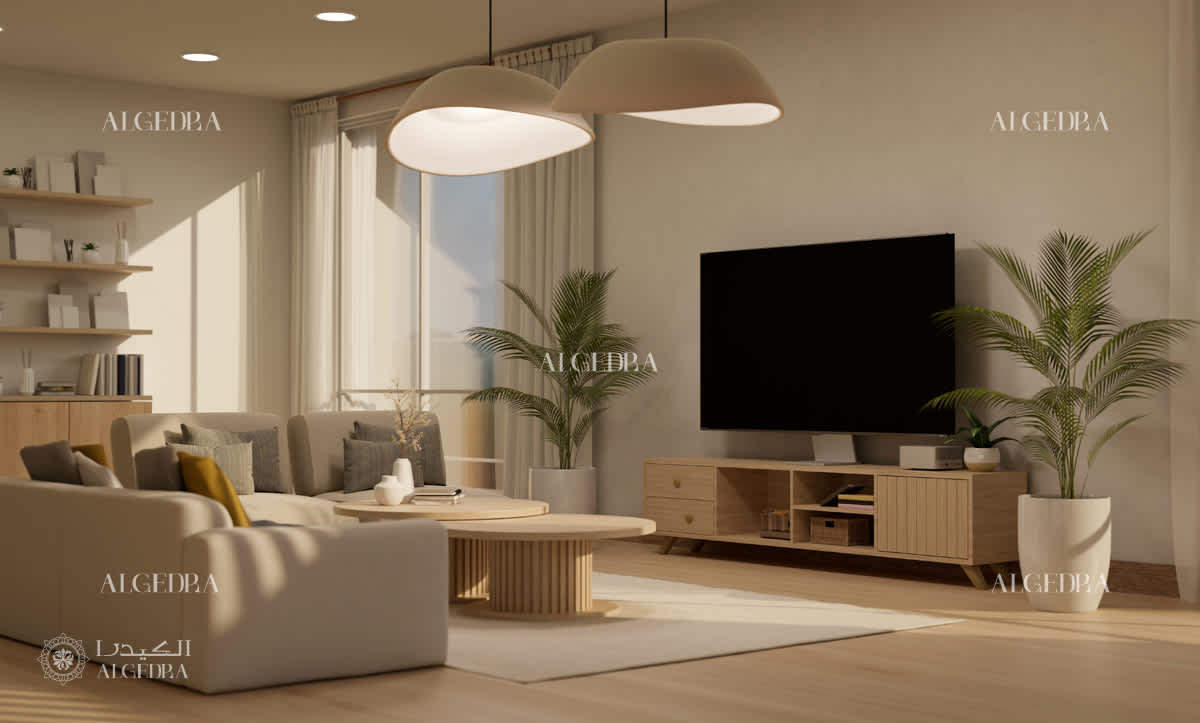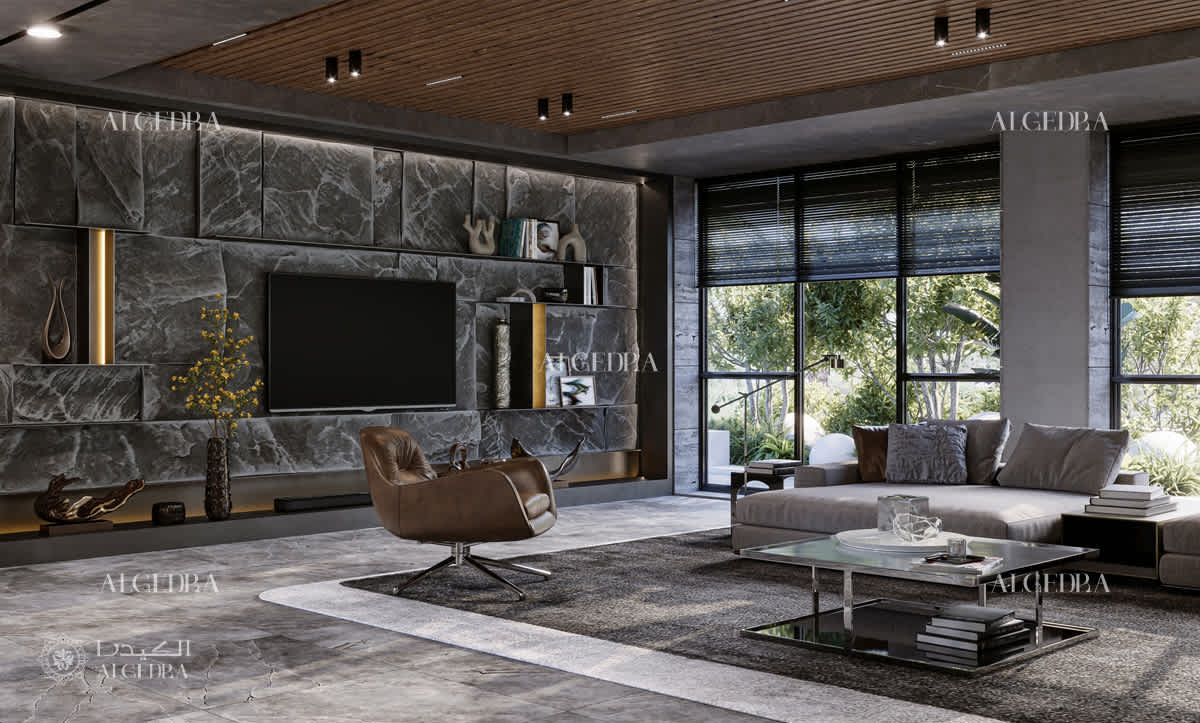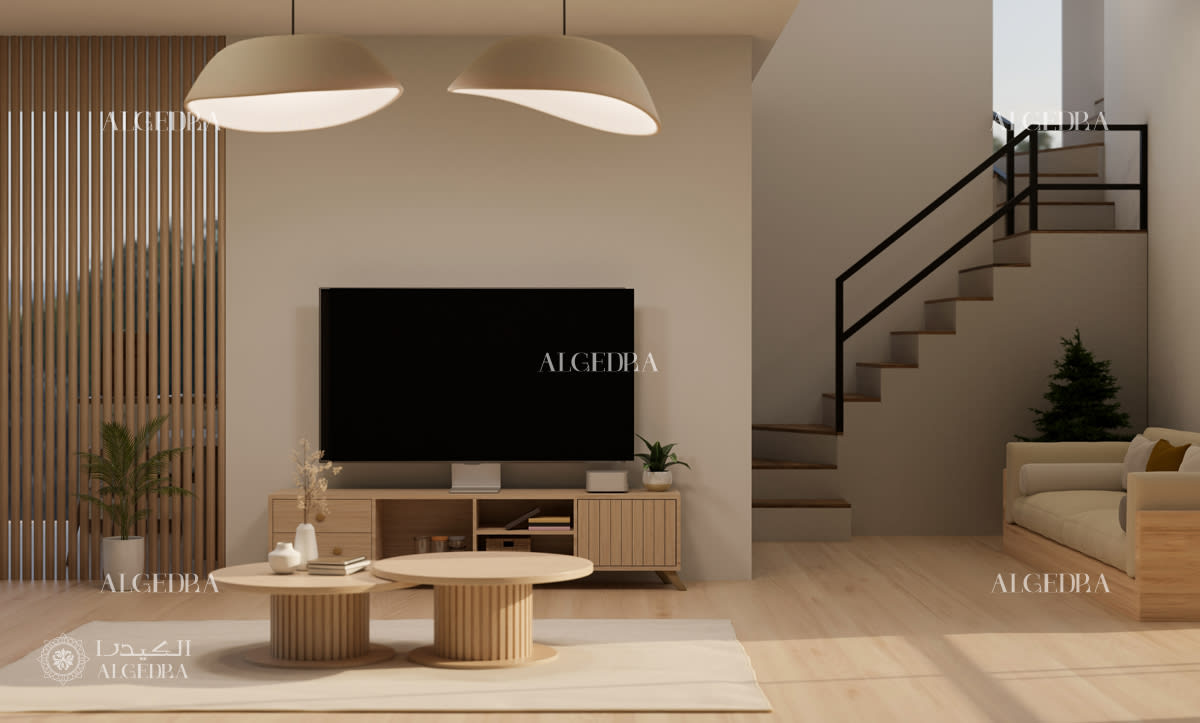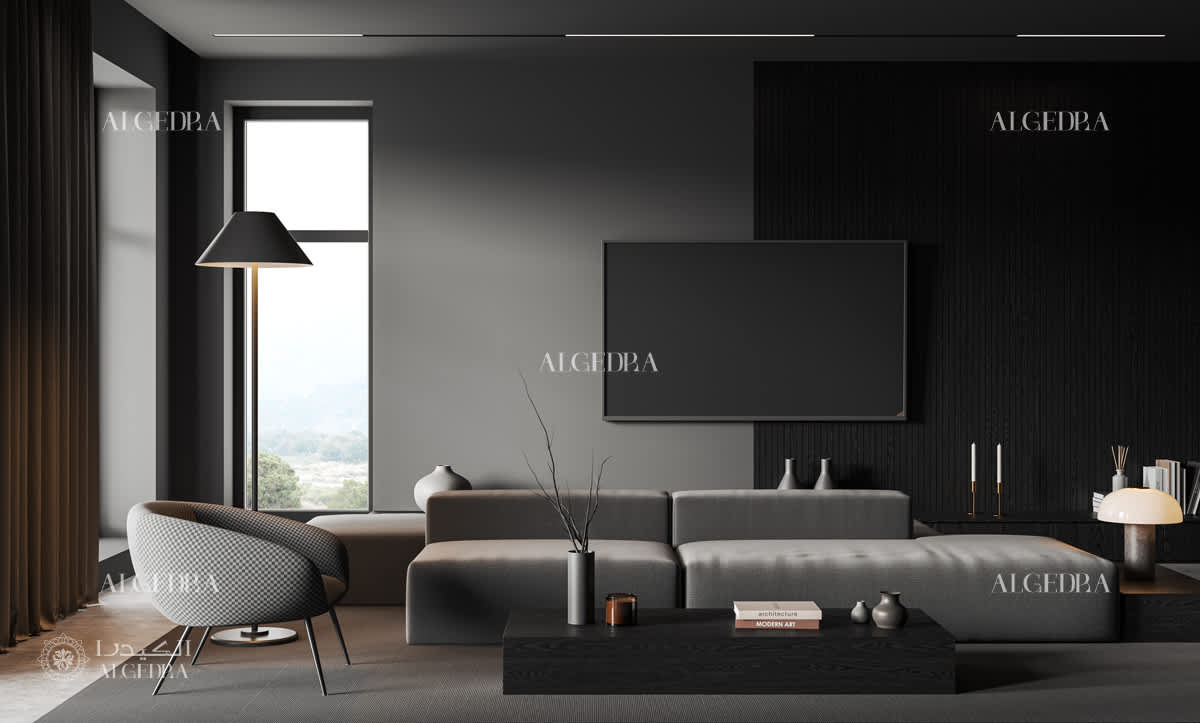Home Page | Blog | Engineering Solutions for Smart Home Designs
Engineering Solutions for Smart Home Designs
6/25/2024
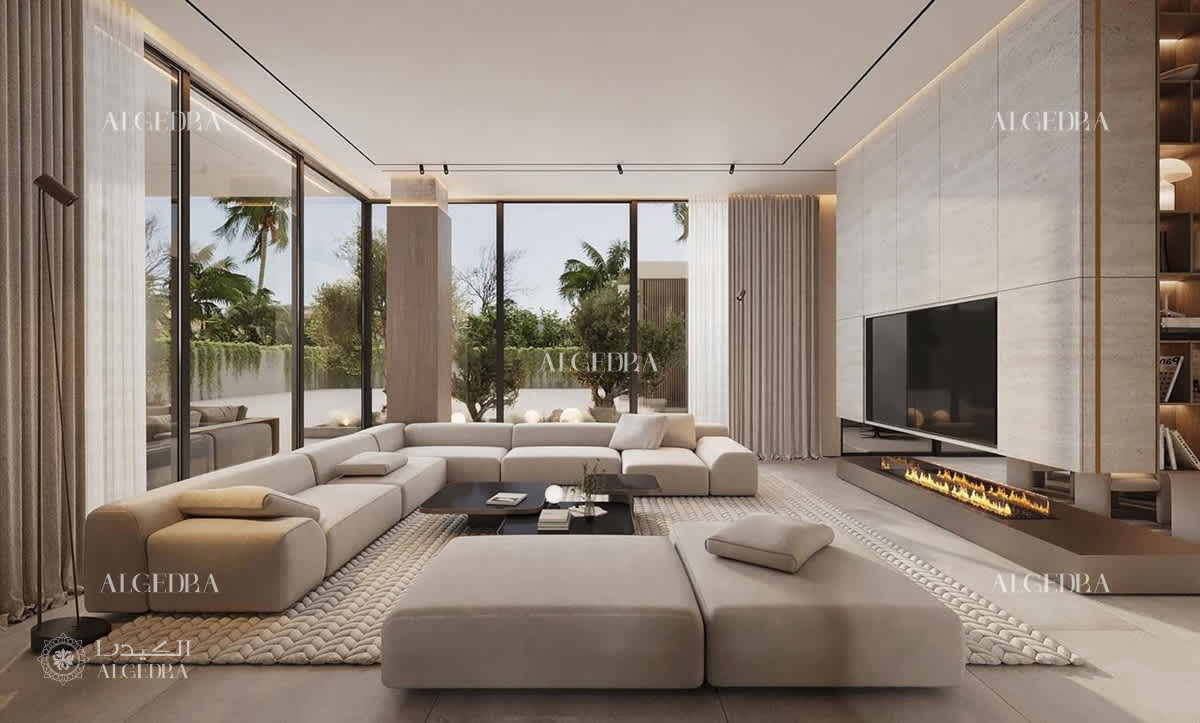
Smart home technology has completely changed the way we live, making it easier, more convenient, and enjoyable. This transformation is driven by innovative engineering solutions that allow for the seamless integration of technology and design.
Algedra experts here will help you to explore the latest engineering solutions for smart home designs, highlighting their benefits, applications, and the future of smart living.
1- The Rise of Smart Homes
Smart homes are no longer a curiosity; they are a reality. According to Statista, the worldwide smart home industry is predicted to reach $146 billion by 2025, with a CAGR of 11.9% between 2020 and 2025. This expansion is fueled by rising demand for convenience, energy efficiency, and security. Homeowners want to be able to easily control their living areas through voice commands, mobile apps, and gestures.
2- The Evolution of Smart Home Technology
Smart home technology has evolved significantly since its inception. In the beginning, smart home gadgets were restricted to basic automation systems like timer-controlled lighting and temperature management. Smart home gadgets are very complex, utilising powerful algorithms, machine learning, and artificial intelligence to provide a seamless living experience.
3- Engineering Solutions for Smart Home Designs
To address this need, engineers are creating novel solutions that blend cutting-edge technology and stylish design. Here are some of the most recent engineering solutions for smart house designs.
Wireless Connectivity: Wireless communication forms the foundation of smart home technology. Engineers are developing improved wireless protocols like Zigbee, Z-Wave, and Bluetooth to allow devices to communicate seamlessly. These protocols provide reliable, low-latency communication, allowing machines to reply promptly to orders.
Artificial Intelligence (AI): AI-powered devices learn about homeowners' behaviours and preferences, and modify lighting, temperature, and security settings accordingly. Engineers are putting AI algorithms into smart home gadgets to improve their usability and responsiveness. For example, AI-powered thermostats may learn a homeowner's schedule and preferences and adjust the temperature to provide a comfortable living environment.
Internet of Things (IoT): IoT enables devices to communicate with each other, creating a network of interconnected devices. Engineers are designing IoT-enabled devices that can be controlled remotely, using mobile apps or voice assistants. IoT also enables devices to share data, creating a more efficient and responsive smart home system.
Smart Sensors: Smart sensors detect changes in temperature, humidity, and light, adjusting settings to create a comfortable living environment. Engineers are developing advanced sensors that can detect subtle changes, ensuring optimal energy efficiency. For example, smart sensors can detect when a room is occupied, adjusting lighting and temperature settings accordingly.
Energy Harvesting: Energy harvesting technology converts ambient energy into electrical energy, powering smart home devices. Engineers are exploring innovative energy harvesting methods, such as solar panels, kinetic energy harvesting, and thermoelectric energy harvesting. Energy harvesting reduces the need for batteries, making smart home devices more sustainable and environmentally friendly.
Cybersecurity: Cybersecurity is a critical aspect of smart home technology. Engineers are developing advanced security protocols, such as encryption and secure authentication, to protect smart home devices from cyber threats. Cybersecurity is essential to prevent unauthorized access to smart home devices, ensuring the safety and security of homeowners.
4- Benefits of Engineering Solutions for Smart Home Designs
The benefits of engineering solutions for smart home designs are numerous:
Energy Efficiency: Smart home devices optimize energy consumption, reducing energy bills and carbon footprint. According to the U.S. Department of Energy, smart home devices can reduce energy consumption by up to 30%.
Convenience: Homeowners can control their living spaces with ease, using voice commands or mobile apps. Smart home devices can also be controlled remotely, enabling homeowners to adjust settings even when they're not at home.
Security: Smart home devices can detect intruders, alerting homeowners and authorities in real-time. Smart home devices can also be integrated with security systems, such as cameras and alarms, to create a comprehensive security system.
Comfort: Smart home devices create a comfortable living environment, adjusting temperature, lighting, and humidity settings. Smart home devices can also be integrated with HVAC systems, ensuring optimal air quality and comfort.
Increased Property Value: Smart home features can increase property value, making homes more attractive to potential buyers. According to a report by Coldwell Banker, 71% of homebuyers consider smart home devices an important feature when buying a home.
5- Applications of Engineering Solutions for Smart Home Designs
Engineering solutions for smart home designs have numerous applications:
Residential Buildings: Smart home technology is being integrated into residential buildings, creating comfortable and convenient living spaces. Smart home devices can be used to control lighting, temperature, and security settings, making homes more energy-efficient and secure.
Commercial Buildings: Smart home technology is being used in commercial buildings, optimizing energy consumption and improving security. Smart home devices can be used to control lighting, temperature, and security settings, making commercial buildings more energy-efficient and secure.
Healthcare: Smart home technology is being used in healthcare, enabling remote monitoring and care for patients. Smart home devices can be used to monitor vital signs, such as heart rate and blood pressure, and alert healthcare providers in case of an emergency.
Aging-in-Place: Smart home technology is enabling seniors to live independently, with devices that can detect falls and alert caregivers. Smart home devices can also be used to control lighting, temperature, and security settings, making homes safer and more comfortable for seniors.
6- The Future of Smart Home Designs
The future of smart home designs is exciting, with engineers pushing the boundaries of innovation. Here are some trends to watch:
Voice-Controlled Homes: Voice-controlled homes will become more prevalent, with devices responding to voice commands. Voice-controlled homes will enable homeowners to control their living spaces with ease, using natural language processing and machine learning.
Biometric Authentication: Biometric authentication will become more widespread, using facial recognition, fingerprint scanning, and voice recognition to secure homes. Biometric authentication will ensure that only authorized users can access smart home devices, preventing unauthorized access and cyber threats.
Autonomous Homes: Autonomous homes will emerge, with devices learning homeowners' habits and preferences to create a seamless living experience. Autonomous homes will use machine learning and artificial intelligence to anticipate homeowners' needs, adjusting settings and automating tasks.
Sustainable Homes: Sustainable homes will become more popular, with energy-harvesting technology and eco-friendly materials being used to reduce carbon footprint. Sustainable homes will use renewable energy sources, such as solar panels and wind turbines, to power smart home devices.
Integrated Smart Home Systems: Integrated smart home systems will become more prevalent, with devices communicating and sharing data to create a more efficient and responsive smart home system. Integrated smart home systems will enable devices to work together, creating a seamless living experience.
Conclusion
Smart home technology is no longer a luxury; it's a necessity. With engineering solutions for smart home designs, homeowners can enjoy a more comfortable, convenient, and secure living experience.
As the smart home market continues to grow, we can expect to see more innovative engineering solutions. From voice-controlled homes to autonomous homes, the future of smart home designs is exciting. Whether you're a homeowner, architect, or engineer, it's essential to stay informed about the latest engineering solutions for smart home designs.
Check our interior design gallery to find out more.
FREE
CONSUL
TATION
FREE CONSULTATION
TELL US ABOUT YOUR PROJECT
WE WOULD LOVE TO HEAR FROM YOU
Feel free to reach us via this contact form and one of our Design Consultants will get back to you at earliest.
OUR BRANCHES
UAE - DUBAI
+971 52 8111106 | hello@algedra.ae
TURKEY - ISTANBUL
+90 533 701 89 71 | info@algedra.com.tr
Leading Interior Design and Decor Company in Dubai and Abu Dhabi.
Algedra is a reputable, internationally recognized, and one of the most successful interior design companies in Dubai, and Abu Dhabi, which specializes in delivering interior design, architectural, and creative space planning projects throughout GCC, MENA, North Africa, Turkey and Russia.
Algedra is a one-stop solution for all your residential interior design and fit-out needs. We have successfully completed numerous villa interior and exterior design projects, where we integrated quality and originality to deliver interior masterpieces.
ALGEDRA, Interior Design Company in Dubai, is specialized in providing elegant and stunning interior design services for both residential and commercial projects. We turn our clients' dreams into reality, trans- lating their tastes and needs into beautiful and functional spaces.
Since the day we were founded, we have designed and built many branded residences, resorts, hotels, multi-purpose social spaces, and palace designs with different functions and concepts by following the ever-changing design trends over the world.
A key element of our work is a fusion of different cultures and designs, combining Greek, Italian, Eastern and Western influences with British innovation.
As a team of highly qualified interior designers and engineers, Algedra offers complete architectural services from mall design to corporate office design as well as the exterior design of any project based on customers' needs.
Our customers include leading names, we have completed diverse projects in hospitality, landscape, commercial, and residential designs. These projects contain cafes, restaurants, gym, villas, family sitting rooms, bedrooms, kitchens; all showcasing our company's exquisite details and high-end designs.
Residential Interior Design in Dubai
Algedra's interior designers and architects have an important mission: building villas, houses, apartments, condos, and anywhere else where you reside that will fulfill your needs while being structurally safe and sound.
Architectural Designs
There are so many details that go into designing an architectural design project. Every step of the project has been carefully considered for safety and daily comfort by Algedra's experts.
Commercial Design
Conceptualizing spaces for business, to elevate style, and to increase functionality to help enhance the bottom line of a company is vital, as well as employee comfort and interior design too. Our commercial interior designers translate client's concept in ways that are efficient, attractive and provide professional workspaces.
Fit-out Projects
Algedra Interiors delivering high-quality tailored fit-out projects that transform your villas, palaces and commercial spaces.
We're a passionate team of interior designers, architects and engineers. Every day we help clients to solve interior design problems and create engaging spaces!
Wherever you are in Kuwait, Saudi Arabia, Azerbaijan, Qatar, Morocco, Algeria, Tunisia, Libya, Egypt; don't hesitate, contact us to find out more about why we are one of the best interior design companies in Dubai and Abu Dhabi!
